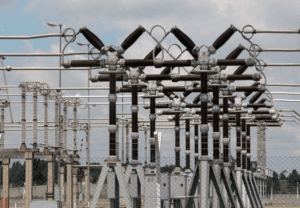FG spends over N50bn monthly on electricity –– Minister
The Minister of Power, Mr Sale Mamman, on Tuesday, has said that the Federal Government spends over N50 billion monthly on electricity.
Mr Aaron Artimas, Special Adviser, Media and Communications to the Minister of Power, disclosed this in a statement in Abuja.
Artimas quoted the minister as saying this when he received the Guild of Actors and Film Producers, otherwise known as Kannywood in his office.
“Worried by the incessant complaints by ordinary Nigerians over the unavoidable and periodic increase in the cost of electricity, the Federal Government has been subsidising electricity supply in the country to the tune of over N50 billion.
“The funds are provided to augment the shortfall by the Distribution Companies (DISCOs) who have failed to defray the cost of bulk electricity supplied to them by the Generating Companies.
“However, following a minor increase in the tariff regime, the subsidy has now decreased by half, but still constitutes a serious drain on the nation’s economy,” he said.
Mamman expressed serious concern over the failure of the DisCos to stabilise their operations to meet their financial obligations to other players in the sector.
He said it was in response to this unfortunate development that the Federal Government had been forced to partly subsidise the sector so as not to place the cost of electricity out of the reach of the common man.
The minister explained that as part of the measures to assist ordinary Nigerians over their frustration in receiving adequate electricity supply, the Federal Government was forced to categorise electricity supply into various bands between highbrow areas and low-income earners.
He said that the categorisation of the supply was to enable everyone to cope with the cost of electricity.
“Nigerians must understand that these companies were privatised long before the advent of this administration but the government has no alternative than to continue managing the sector before a final solution is secured.
“Through the Presidential Power Initiative and other intervention measures, the government is diligently working to massively resolve all these inherited problems that have continuously frustrated the success of the sector,” he said.
Mamman said that most of the DisCos were sold off and managed as family businesses which had made them difficult to be professionally managed.
The minister regretted that while some of these problems persisted, remarkable performance and progress had been achieved by the Federal Government, as the supply of electricity had stabilised at over 5,000 megawatts




